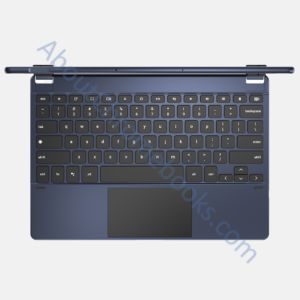Just seven days away from the #MadeByGoogle event, there’s a little more news available for the Pixel Slate, also known as Nocturne. Similar to the current Pixelbook, at least one configuration option for the Chrome OS tablet is likely to be an 8th-generation Intel Core i7 paired with 16 GB of memory. That information comes from Geekbench testing results spotted by Phone Arena on Tuesday.
A few things stand out here. First, the obvious and/or expected: The Core i7-8500Y processor isn’t really a surprise and it indicates that Google’s first Chrome OS tablet should have comparable performance to the Pixelbook 2, if indeed that gets a refresh. It’s also in line with the top configuration of the current Pixelbook, although that device uses a similar 7th-gen processor.
The 16 GB of memory is also what Google offers in its top-of-the-line Pixelbook, so it appears that the tablet will have a high-end configuration akin to last year’s Pixelbook. That model also included a 512 NVMe SSD, so perhaps Google will complete the match and offer that same option for the most expensive Pixel Slate.
Also interesting is that Geekbench reports Android 9 as the operating system. That suggests the Android environment on the Pixel Slate — and likely any new Pixelbook — is running Android Pie, not Android Oreo. The upgrade is to be expected of course; it appears that the newest devices will come with Android 9 support out of the box. Older devices are likely to see the Pie upgrade at some future point although I think that will happen in Chrome OS 71 by the end of the year.
 So does this mean we’ll be shelling out around $1,500 for the Pixel Slate starting next week? Perhaps for this configuration, but don’t panic just yet: There are surely lower-priced configuration options with 8th-gen processors. Surely there will be a few Core i5-8200Y options and I wouldn’t rule out an m3-8100Y or even a Pentium or Celeron choice to be had, along with a few different detachable keyboard options.
So does this mean we’ll be shelling out around $1,500 for the Pixel Slate starting next week? Perhaps for this configuration, but don’t panic just yet: There are surely lower-priced configuration options with 8th-gen processors. Surely there will be a few Core i5-8200Y options and I wouldn’t rule out an m3-8100Y or even a Pentium or Celeron choice to be had, along with a few different detachable keyboard options.
One last note: I wouldn’t read into the Geekbench scores too much. Remember that the test uses Android, which is essentially run in a container within Chrome OS. As a result, there could be some overhead that negatively impacts performance.


4 Comments
Really hoping to see a bit better Benchmark scores… though I really don’t judge by them, I am hoping these do show better results. Using the current Pixelbook i7 I decideded to run the Geekbench 4.3.0 just to see where my Pixelbook i7 would compare with the prerelease of the upcoming PixelTablet. Keeping in mind that the test results could be from a non-final release software on the upcoming PixelTablet.
My Pixelbook i7 results Single-Core Score: 4369 Multi-Core Score: 8071. To early to judge and hoping to purchase the Pixel Tablet.
There are those of us who are are very pleased with where Google has been taking Chrome OS and Chromebooks as the versatile computing system that can be implemented on either laptops or tablets while at the same time fully respecting the important distinctions between those two categories of device.
I do foresee problems for these new Chromebooks, however. Chrome OS devices still only comprise a relatively small segment of the computer market. In order for any computing system/OS platform that hasn’t already attained widespread popularity to make solid headway against incumbent systems supported by determined competitors the computing system seeking an expanded user base will have to offer notable advantages to its users. While I am happy to see the new variety of Chromebook types and specifications emerging I do not yet see the truly disruptive Chromebook to really shake things up.
The Intel Y series CPUs at one time looked impressive. They do not today. The new Apple A12 SoC (admittedly, not in tablets yet but it will likely appear soon enough – in enhanced form, perhaps – in the next iPad Pro) looks to be more than a match for the top Y series chip. See https://www.anandtech.com/show/13392/the-iphone-xs-xs-max-review-unveiling-the-silicon-secrets
There is little to make tablet users run to pick up a new Chromebook tablet when they could just as easily pick up an iPad or iPad Pro. This situation is further complicated by the fact that Intel asks very good money for these rather undistinguished Y series chips. Unless Google can bring out computers at a reasonable price that outshine the products offered by its competitors widespread acceptance of Chromebooks any time soon – outside the education market – might be an unachievable goal.
Perhaps nothing short of a SoC designed by Google will get Google to where it wants to be with Chromebooks.
I don’t disagree with anything you’ve said. But… most iPad users also have a traditional computer. With Chrome OS tablets, some may be swayed to buy one device that pulls double duty. The key difference is that Chrome OS devices have a full desktop browser while iPads do not. Of course if people need traditional software, they’re still not going to switch to Chrome OS.
Well that is a good point and one that seems to be attracting the agreement of initial reviewers of the Pixel Slate who like the balance that it strikes between work and play. See
https://www.theverge.com/2018/10/9/17950646/google-pixel-slate-tablet-chrome-os-photos-video-hands-on
and
https://www.engadget.com/2018/10/09/google-pixel-slate-hands-on/
I am encouraged by this kind of response to the release of the Pixel Slate but the economics of being hitched to Intel will remain a challenge for Google (or any Chrome tablet vendor).